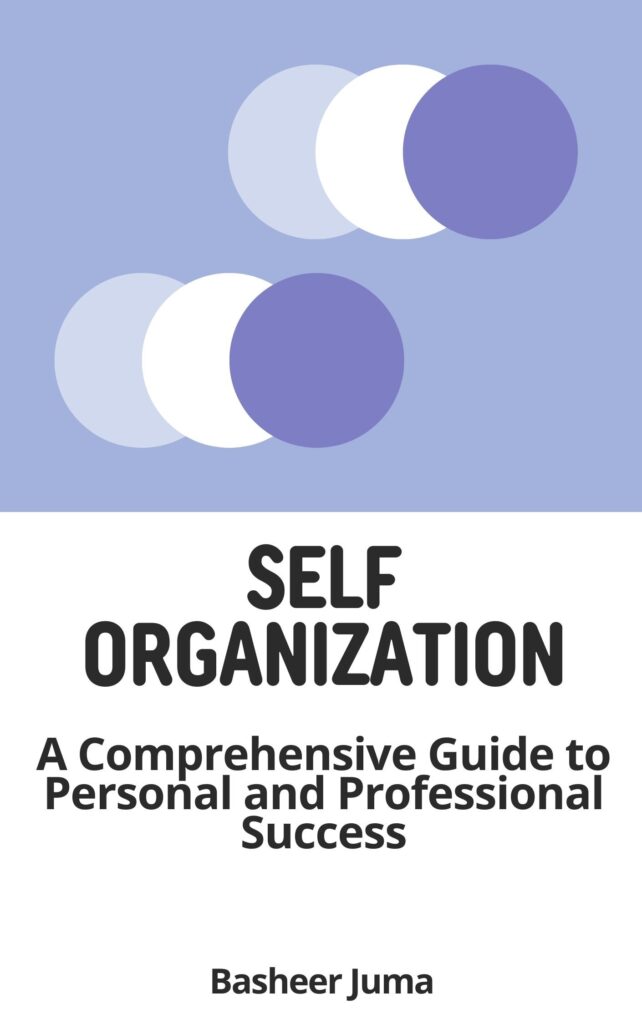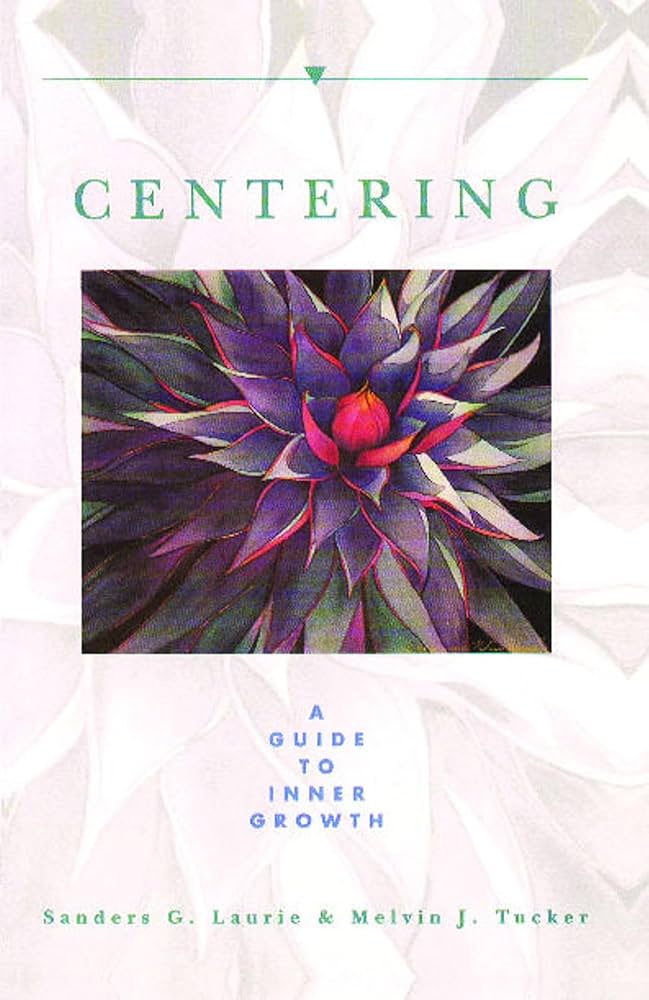Welcome to “Mastering Self-Organization: A Guide to Inner Growth”, where you will learn the importance of organizing your individual self for personal growth. This article will explore the art of mapping your inner self and provide insightful tips on how to achieve self-organization. By understanding the self-organizing feature map within you, you will unlock your true potential and experience inner transformation like never before. Get ready to embark on a journey of self-discovery and unleash the power of personal organization for a more fulfilling life. Have you ever found yourself feeling overwhelmed or scattered, unsure of where to start or how to prioritize your tasks and responsibilities? If so, you’re not alone. Many people struggle with self-organization, but the good news is that it’s a skill that can be learned and mastered with practice. In this article, we will delve into the art of self-organization and provide you with a comprehensive guide to help you achieve inner growth and personal development. Let’s explore together how you can take control of your life and create a sense of order and clarity in your day-to-day activities.
Understanding Self-Organization
Self-organization refers to the ability to efficiently structure, manage, and prioritize tasks and responsibilities in a way that maximizes productivity and reduces stress. It involves creating systems and routines that help you stay on track and focused on your goals. By mastering self-organization, you can increase your efficiency, improve your time management skills, and ultimately achieve greater success in all areas of your life.
Understanding the importance of self-organization and its impact on your overall well-being is the first step towards personal growth and development. By taking the time to reflect on your current habits and routines, you can identify areas where you can make improvements and implement strategies to enhance your organizational skills.
Why is Self-Organization Important?
Self-organization plays a crucial role in helping you achieve your goals and fulfill your potential. By establishing effective systems and routines, you can reduce distractions, overcome procrastination, and focus on the tasks that matter most. This leads to increased productivity, improved time management, and a greater sense of control over your life.
When you are organized, you are better able to manage your time effectively and allocate resources efficiently. This allows you to make the most of your talents and abilities, leading to greater success and fulfillment in both your personal and professional life.
The Benefits of Self-Organization
Developing strong self-organization skills has numerous benefits, including:
- Increased productivity and efficiency
- Improved time management
- Reduced stress and anxiety
- Enhanced focus and concentration
- Greater clarity and direction
- Better decision-making
- Improved self-discipline and self-control
By mastering the art of self-organization, you can experience these benefits and more, allowing you to lead a more balanced, fulfilling, and purposeful life.

Creating a Self-Organization System
Creating a self-organization system involves establishing routines, setting goals, prioritizing tasks, and managing your time effectively. By developing a personalized system that works for you, you can streamline your daily activities, eliminate clutter and distractions, and achieve greater focus and productivity. Let’s explore some strategies for creating an effective self-organization system that will help you achieve inner growth and personal development.
Establishing Routines and Habits
Routines and habits are the foundation of a successful self-organization system. By establishing consistent daily routines, you can create structure and predictability in your life, making it easier to stay organized and focused on your goals. Start by identifying the key areas of your life that could benefit from routine, such as morning and evening routines, work routines, and leisure activities.
Identify the tasks that are essential to your daily routine and create a schedule that allows you to complete them efficiently. For example, you may want to set aside time each morning for exercise, meditation, or journaling, or establish a specific time each day for checking emails and responding to messages. By developing consistent habits and routines, you can create a sense of order and stability in your life, enhancing your overall well-being and productivity.
Setting Goals and Priorities
Setting clear, achievable goals is essential for effective self-organization. By defining your objectives and priorities, you can focus your energy and attention on the tasks that will bring you closer to your desired outcomes. Start by identifying your long-term goals and breaking them down into smaller, more manageable tasks.
Create a list of priorities based on the urgency and importance of each task, and allocate your time and resources accordingly. By setting goals and priorities, you can avoid feeling overwhelmed or scattered, and instead, create a sense of purpose and direction in your day-to-day activities.
Time Management Techniques
Effective time management is a key component of successful self-organization. By implementing time management techniques, such as the Pomodoro Technique, the Eisenhower Matrix, or the 80/20 Rule, you can maximize your productivity and efficiency, making the most of your time and energy.
The Pomodoro Technique involves breaking work into short, focused intervals (typically 25 minutes) followed by a short break. This can help you stay focused and energized throughout the day, while also preventing burnout and fatigue. The Eisenhower Matrix, on the other hand, helps you prioritize tasks based on their urgency and importance, allowing you to focus on high-value activities and eliminate distractions.
The 80/20 Rule, also known as the Pareto Principle, states that 80% of your results come from 20% of your efforts. By identifying the most important tasks that will yield the greatest results, you can focus your time and energy on activities that have the biggest impact on your goals and objectives.
Organizing Your Workspace
A cluttered and disorganized workspace can hinder your productivity and focus, making it difficult to stay on task and accomplish your goals. By organizing your workspace and creating an environment that promotes efficiency and creativity, you can enhance your overall well-being and performance.
Start by decluttering your desk and removing any unnecessary items that are taking up space. Create designated areas for different tasks and activities, such as a workspace for computer work, a reading nook for leisure activities, and a storage area for supplies and materials. Use storage solutions, such as bins, drawers, and shelves, to keep your workspace tidy and organized, making it easier to find what you need when you need it.
Tracking Your Progress
Tracking your progress is essential for maintaining motivation and accountability as you work towards your goals. By keeping track of your accomplishments, setbacks, and milestones, you can stay motivated and focused on your objectives, celebrating your successes and learning from your failures.
Use a journal, planner, or digital tracking tool to record your progress and reflect on your experiences. Set aside time each day to review your goals and tasks, making adjustments as needed to ensure that you are on track to achieve your desired outcomes. By tracking your progress, you can stay organized and motivated, maintaining momentum and making continuous progress towards your goals.

Conclusion
Mastering self-organization is a lifelong journey that requires dedication, effort, and practice. By establishing routines, setting goals, managing your time effectively, organizing your workspace, and tracking your progress, you can develop strong self-organization skills that will help you achieve inner growth and personal development.
Remember that self-organization is not about perfection or rigid adherence to strict rules and guidelines. It’s about finding what works best for you, adapting to your unique preferences and needs, and creating a system that supports your goals and values. By taking the time to invest in yourself and your personal development, you can create a sense of balance, clarity, and purpose in your life, allowing you to reach your full potential and experience greater fulfillment and happiness.
So, are you ready to embark on your journey to mastering self-organization and achieving inner growth? Start today by implementing some of the strategies and techniques outlined in this article, and watch as you transform your life and create a sense of order, clarity, and purpose in everything you do. Remember, you have the power to design the life you want and deserve – all it takes is a little self-organization and a lot of determination.